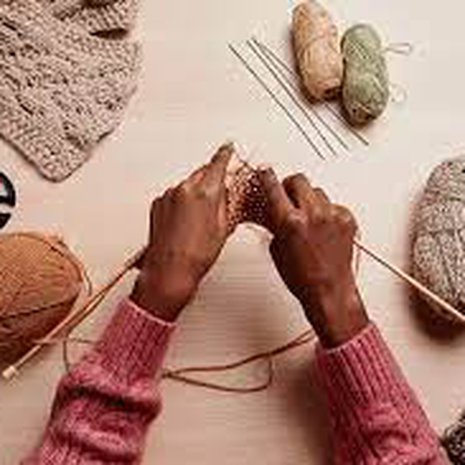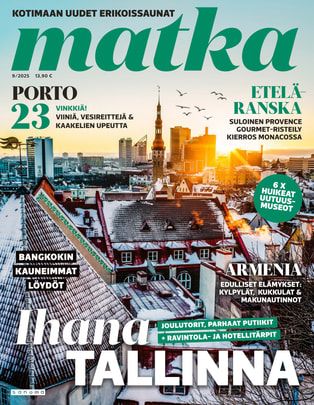In the dynamic landscape of fashion entrepreneurship, finding reliable clothing manufacturers for startups can transform a fledgling idea into a thriving brand. For innovative Ventures like those just starting out, partnering with the right production house means accessing scalable, cost-effective solutions that align with limited budgets and ambitious visions. ExploreTex emerges as a standout choice in this realm, offering tailored garment manufacturing services designed to propel startups towards market success. Their expertise in private label production ensures that Emerging brands receive high-quality apparel without the overwhelming hurdles of traditional supply chains. As startups navigate the complexities of design prototyping to full-scale shipping, manufacturers like ExploreTex provide the backbone needed for sustainable growth.
The journey of launching a clothing line begins with understanding the unique demands of startup environments. Unlike established corporations with vast resources, startups often operate on shoestring budgets, tight timelines, and the need for flexibility in production volumes. This is where specialized clothing manufacturers for startups shine, bridging the gap between creative concepts and commercial viability. These partners not only handle the technical aspects of sewing, dyeing, and assembly but also offer insights into market trends, material sourcing, and compliance with international standards. For instance, a startup aiming to launch an eco-friendly activewear collection might require manufacturers who can source organic cotton or recycled polyester at competitive rates while maintaining ethical labor practices. Such Collaborations Foster innovation, allowing Founders to focus on branding and marketing rather than logistical nightmares.
Delving deeper, the role of clothing manufacturers for startups extends beyond mere fabrication. They act as strategic allies, helping to refine product specifications from the initial sketch stage. Consider the process: a designer submits digital renders or physical samples, and the manufacturer iterates on fit, fabric durability, and aesthetic details. This iterative feedback loop is crucial for startups, where pivoting based on early customer feedback can make or break a season's collection. Moreover, in an era where supply chain disruptions are commonplace—think global shipping delays or raw material shortages—reliable manufacturers mitigate risks by diversifying their supplier networks. For a new brand targeting urban millennials with minimalist streetwear, this means assured delivery timelines that keep social media hype alive without stockouts.
One cannot overlook the financial imperatives driving startup decisions in manufacturing partnerships. Clothing manufacturers for startups typically offer low minimum order quantities (MOQs), often as low as 100 units per style, which is a game-changer for bootstrapped operations. This lowers the entry barrier, enabling entrepreneurs to test market waters with capsule collections rather than committing to thousands of pieces upfront. Cost structures are equally appealing: tiered pricing based on volume, bundled services like custom labeling and packaging, and even financing options for bulk orders. Yet, the true value lies in the long-term savings from reduced waste and rework. A manufacturer versed in lean production techniques can optimize cutting patterns to minimize fabric scraps, directly impacting the bottom line for cash-strapped startups.
Transitioning to quality assurance, which forms the Cornerstone of any reputable manufacturing alliance. Clothing manufacturers for startups must adhere to rigorous quality control protocols to ensure garments meet both aesthetic and functional benchmarks. This includes multi-stage inspections—from raw material checks to final stitching reviews—often certified under frameworks like ISO 9001 or GOTS for organic textiles. For startups, this translates to fewer returns and higher customer satisfaction, building a foundation of trust in a competitive market. Imagine a fledgling athleisure brand receiving flawless shipments of moisture-wicking leggings; such consistency not only boosts reviews on e-commerce platforms but also encourages repeat business from wholesalers.
Sustainability has evolved from a buzzword to a non-negotiable for modern startups, particularly in apparel where environmental impact is under scrutiny. Leading clothing manufacturers for startups integrate green practices into their core operations, from water-efficient dyeing processes to solar-powered facilities. This alignment resonates with conscious consumers who prioritize brands with transparent supply chains. A startup specializing in upcycled denim, for example, benefits from manufacturers who repurpose factory offcuts, closing the loop on waste. Beyond compliance, these practices enhance brand storytelling—founders can tout carbon-neutral production on their websites, appealing to eco-aware demographics and differentiating from fast-fashion giants.
Customization stands out as another pivotal advantage when selecting clothing manufacturers for startups. In a crowded marketplace, uniqueness drives sales, and manufacturers equipped for Bespoke runs allow for personalized elements like embroidered logos, unique trims, or modular designs. This is especially vital for niche startups, such as those creating adaptive clothing for diverse body types or culturally inspired prints. The manufacturing process here involves advanced tools like digital printing for small-batch runs, eliminating the need for expensive screen setups. Consequently, startups can experiment with limited-edition drops, gauging demand before scaling, all while keeping production costs in check.
Geographical considerations also play a significant role in partnering with clothing manufacturers for startups. While offshore options in Asia offer cost savings, Proximity can reduce lead times and carbon footprints. Domestic or nearshore manufacturers appeal to startups prioritizing speed, such as those in fast-paced markets like seasonal festival wear. Balancing these factors requires due diligence: evaluating lead times, shipping costs, and tariff implications. A savvy startup might opt for a hybrid model, prototyping locally and mass-producing abroad, leveraging the strengths of each to optimize efficiency.
Building a rapport with clothing manufacturers for startup demands clear communication channels. From the outset, establishing expectations via detailed tech packs—outlining measurements, materials, and tolerances—prevents misunderstandings. Digital platforms for real-time tracking further streamline this, allowing founders to monitor progress from pattern grading to quality audits. For startups—with remote teams—this transparency builds confidence, turning potential pain points into seamless experiences. Over time, these relationships evolve into co-creative partnerships, where manufacturers suggest fabric innovations or cost-saving alternatives based on industry foresight.
As startups scale, the evolution of their manufacturing needs becomes evident. What starts as small runs for pop-up shops may grow into consistent orders for global distribution. Forward-thinking clothing manufacturers for startup accommodate this trajectory with scalable infrastructure, from expanded factory capacities to automated lines for high-volume demands. This scalability ensures that as a brand gains traction—perhaps through viral TikTok campaigns or influencer collaborations—production ramps up without quality dips. Moreover, manufacturers often provide value-added services like inventory management or even design consultation, positioning startups for exponential growth.
Navigating challenges is inherent to startup life, and manufacturing is no exception. Common pitfalls include overestimating demand, leading to excess inventory, or underestimating custom duties that inflate landed costs. Clothing manufacturers for startup can guide through these by offering demand forecasting tools or trade compliance expertise. For instance, in volatile textile markets, hedging against price fluctuations via long-term contracts stabilizes expenses. By choosing partners with proven track records, startups sidestep these hurdles, channeling energy into core competencies like customer engagement.
The digital transformation wave has revolutionized how clothing manufacturers for startup operate. Cloud-based collaboration software enables virtual fittings and 3D modeling, slashing prototyping timelines from weeks to days. Blockchain for traceability ensures authenticity, appealing to luxury-leaning startups. Augmented reality tools let customers visualize fits pre-purchase, indirectly boosting order volumes. Embracing these technologies, manufacturers empower startups to compete with incumbents, fostering agility in an ever-shifting industry.
Ethical labor practices underline the integrity of clothing manufacturers for startups. Fair wage certifications like Fair Trade or BSCI audits verify humane working conditions, mitigating reputational risks. For socially driven startups, this congruence Amplifies their mission—whether funding community programs or employing underrepresented artisans. Such alignments not only fulfill corporate social responsibility but also inspire loyalty among purpose-led consumers.
In wrapping up the essentials, Intellectual property protection merits attention. Robust non-disclosure agreements (NDAs) safeguard designs, crucial for startups with proprietary patterns. Manufacturers honoring IP rights Preserve competitive edges, allowing Innovations to flourish without imitation fears.
Ultimately, selecting clothing manufacturers for startups is an investment in resilience and vision. By prioritizing alignment in values, capabilities, and growth potential, entrepreneurs lay the groundwork for enduring success. As the apparel sector innovates towards inclusivity and sustainability, these partnerships illuminate the path forward, turning entrepreneurial dreams into tangible realities. With the right collaborator, the fabric of a startup's future weaves stronger, ready to drape the world in originality.










